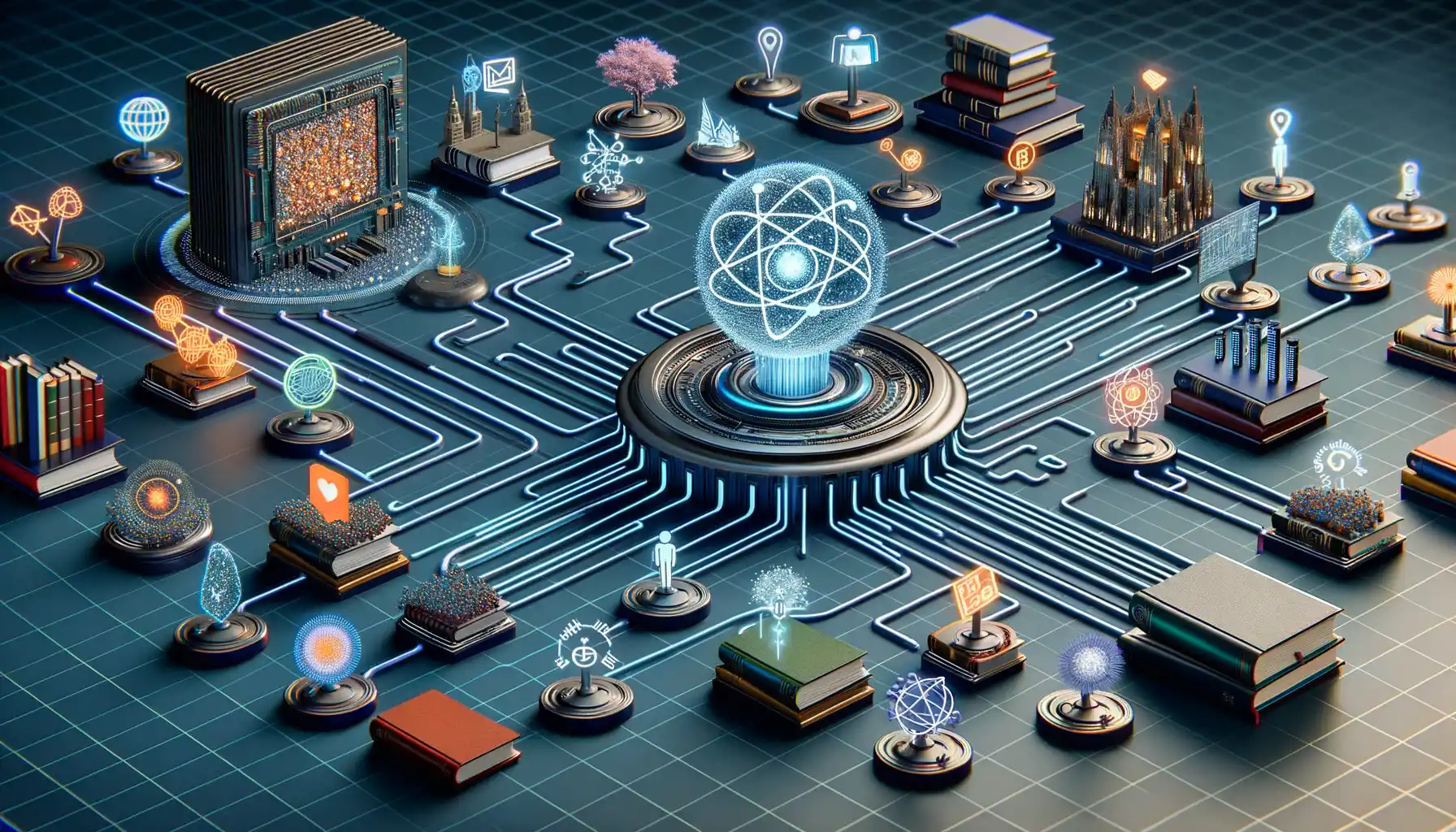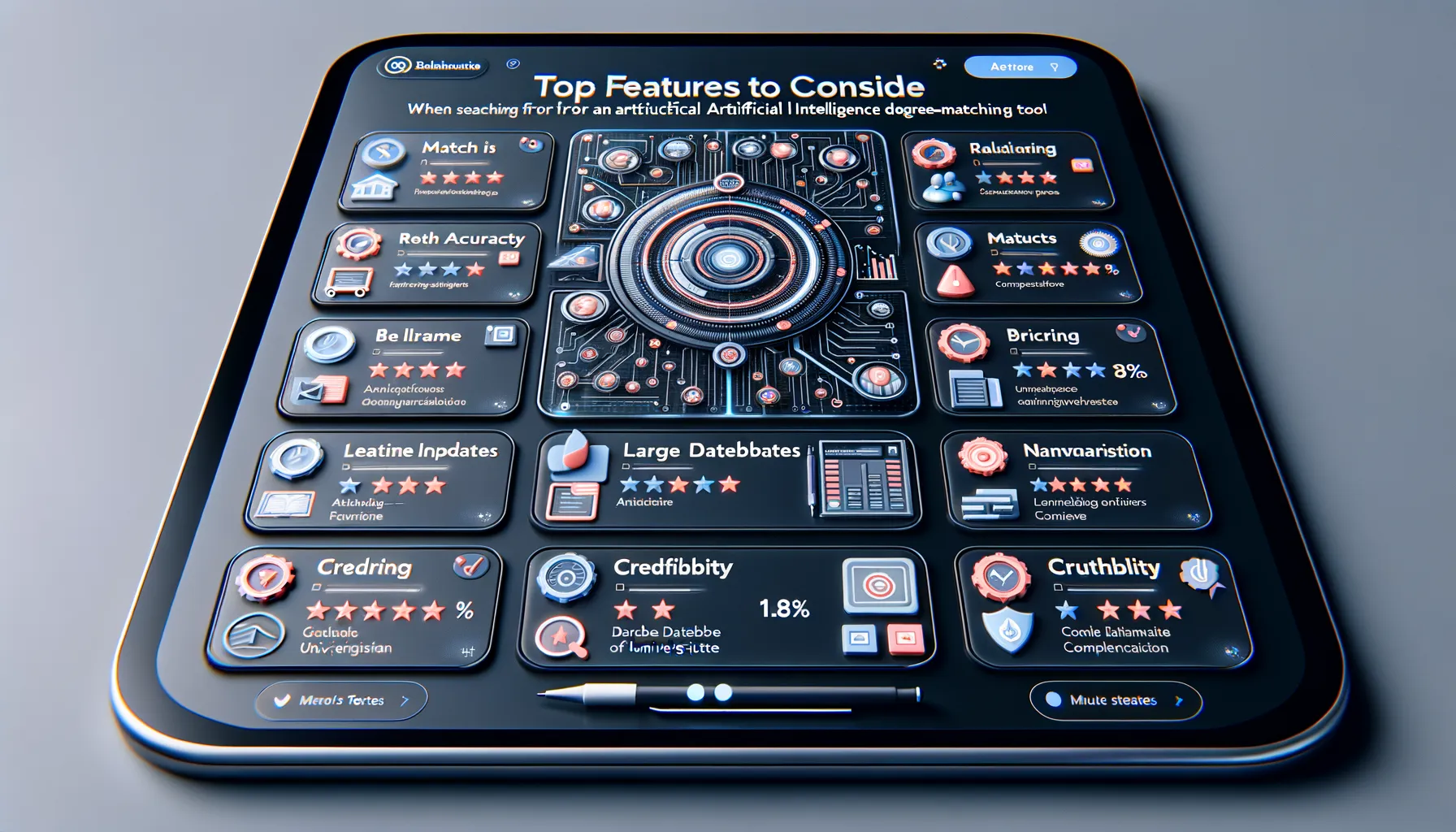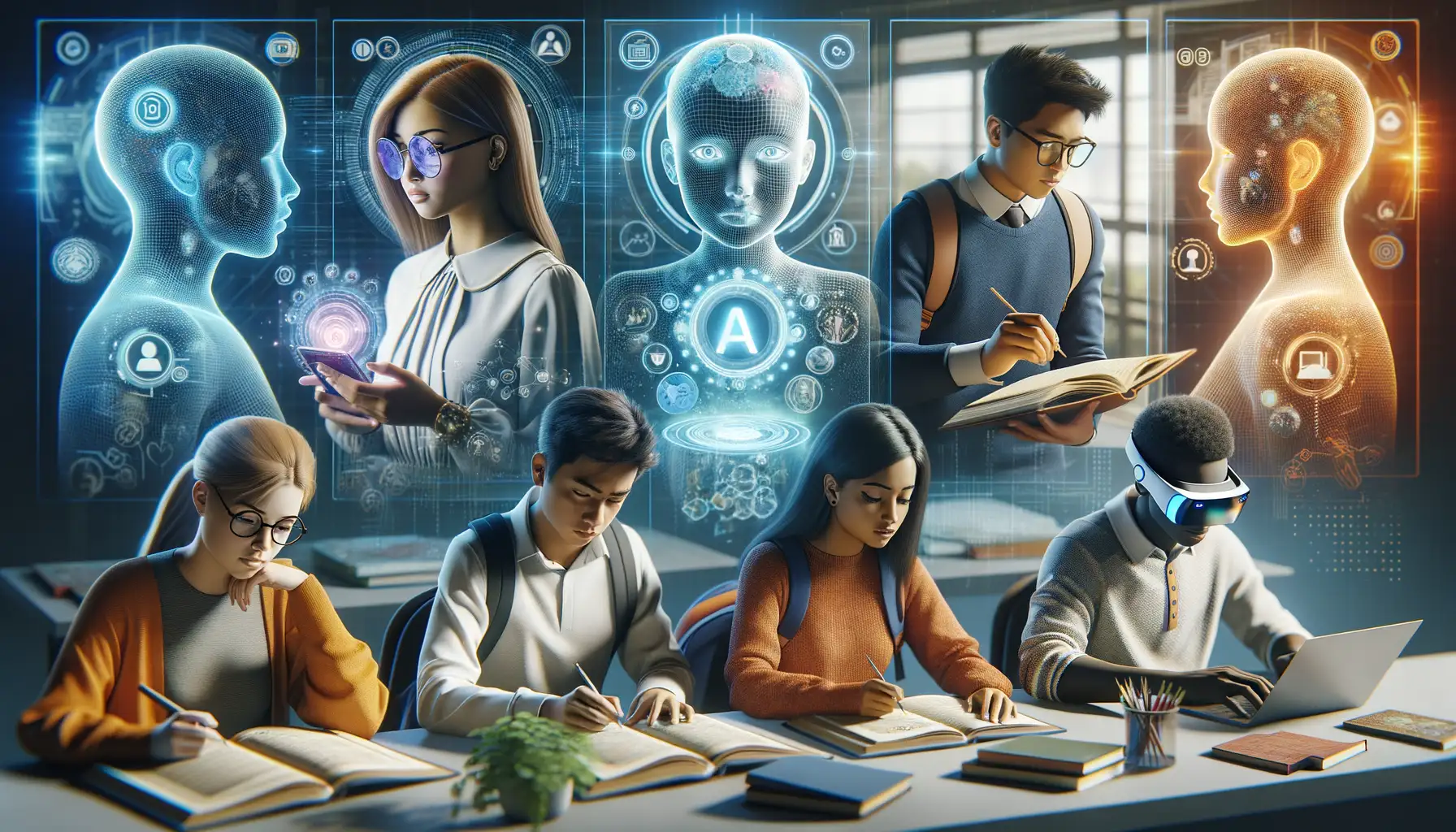AI Recommendation Engines for Matching Students to Perfect Majors
Catch a CheaterIntroduction to AI in Education and Career Planning
Are you ready to reimagine how students discover their academic paths? In a world where choices about majors can feel like navigating a maze blindfolded, the role of AI in education has become nothing short of transformative. Imagine having a personal guide—an algorithmic matchmaker—that sifts through mountains of data to reveal the perfect fit for your passions, skills, and dreams. It’s like having a compass that always points to “true north.”
Why Students Need Smarter Guidance
Let’s face it: deciding on a major is overwhelming. With hundreds of options, how do you pin down the one that feels just right? Here’s where AI swoops in as a trusted helper. And no, this isn’t some cold, robotic process. Modern AI tools are remarkably intuitive, blending facts with feelings to make suggestions that resonate. Whether you’re a budding scientist or an aspiring poet, AI digs deep, analyzing your strengths and career goals.
- Pattern recognition: AI identifies trends in your preferences and achievements.
- Real-world insights: From job market data to internship opportunities, it connects the dots for your future.
Think of it as having a career counselor who never sleeps and always remembers what matters most to you.
How AI Recommendation Engines Work for Major Selection

From Ambition to Action: How AI Deciphers Your Perfect Major
Imagine walking into a massive library where thousands of books are stacked high, each one representing a different career path or field of study. Overwhelming, right? Now, picture a guide—an ultra-intelligent assistant—whispering, “Hey, I know what you’ll love,” as they handpick the perfect book for you. That’s how a modern-day AI recommendation engine feels when it helps you choose your major.
It starts with data—your academic strengths, interests, personality traits, and even professional dreams form the core ingredients. Through clever algorithms and machine learning, the AI identifies patterns, like spotting the way your knack for problem-solving aligns with engineering or how your love for storytelling could shine in communications.
But it doesn’t stop there. These systems also consider external factors, like emerging job market trends. They not only understand *who you are* but also *where the world is headed*. Imagine an assistant showing you options that balance your passions with real-world opportunities, ensuring you’re well-prepared for what comes next.
- Psychometrics: Personality quizzes feed insights into how you think and what motivates you.
- Career Mapping: AI connects dots between your talents and industries hungry for those skills.
- Data-Driven Clarity: Goodbye, guesswork—hello, informed decisions!
It’s not a crystal ball—it’s better. It’s your future, perfectly tailored.
Key Benefits of Using AI for Matching Students to Majors

Why AI Makes Choosing the Right Major a Game-Changer
Imagine standing at a crossroads with dozens of paths stretching out before you. Overwhelming, isn’t it? That’s how most students feel when they’re asked to pick a major that might define their future. This is where AI-powered recommendation engines swoop in like a trusty guide, steering you toward the perfect match based on who you are—and not just your grades.
Unlike traditional methods that rely on generic quizzes, AI tools dig deeper. They analyze everything from your academic record to your personal interests—and even your dreams. One student might discover their love for environmental engineering after an AI tool connects their passion for nature photography and high math scores. Another could find themselves excited about film studies because of an overlooked creative streak.
- Personalization at its best: AI doesn’t just suggest—it understands, creating a tailored roadmap for success.
- Hidden strengths revealed: Sometimes, we don’t see our own potential. AI spots it for you.
- No bias, just data: AI focuses on facts, avoiding the usual stereotypes like “You’re good at math, so be an engineer.”
From Overwhelmed Student to Confident Decision-Maker
Picture this: You’re sitting in front of your computer, staring at a list of 200 majors. Stressful, right? Now, imagine an AI tool trimming that down to five options that truly resonate with your personality, skills, and aspirations. It’s like having a career counselor who knows you better than your best friend!
These tools embrace the complexity of who you are. If you’re passionate about both coding and social justice, you won’t be shoved into one box. Instead, the AI might suggest innovative paths like tech for public policy or ethical AI development. By eliminating the guesswork, AI empowers students to feel confident and excited, not uncertain or pressured.
Top Features to Look for in an AI Degree-Matching Tool

Unlocking the Must-Have Features for Your Perfect Match
When it comes to finding an AI degree-matching tool that truly delivers, you want more than just a basic recommendation system. Picture it like finding the ultimate travel companion—you need one that’s intuitive, insightful, and always a step ahead of your needs. Here’s what to zero in on:
- Personalization at its Peak: A great tool doesn’t just ask about your grades; it dives into your passions, interests, and even quirky dreams. Want to combine marine biology with photography? The right AI should instantly connect those dots.
- Real-Time Data Insights: Top-notch tools source updated career trends, salary stats, and job market demands. Think of it as having a life coach who knows exactly where the jobs are hot before everyone else.
- Easy-to-Understand Feedback: Forget confusing jargon. An exceptional AI tool provides straightforward explanations—no decoding needed—so you understand exactly why a major fits you.
Dynamic Adaptability: The Game-Changer
Sometimes, life throws curveballs. Maybe your interests shift from engineering to culinary arts after binge-watching a cooking show. The best AI tools adapt gracefully, recalibrating recommendations without skipping a beat. They grow with you, just like a trusted mentor would.
Plus, look for tools that integrate quizzes or personality assessments (hello, self-discovery!) while keeping the process fun—because choosing your future should feel like an adventure, not a chore.
Future Trends in AI-Powered Educational Guidance

AI as Your Personalized Academic Compass
Imagine having a mentor who never gets tired, knows every college course on the planet, and can predict your future passions based on just a few clicks. That’s the transformative power of AI in educational guidance—and it’s only getting sharper. Soon, these technologies won’t just recommend majors; they’ll serve as your lifelong academic GPS, adapting as you grow and pivot in your interests.
Picture an AI that not only suggests Computer Science because you’re good at math, but picks up on your love of storytelling from your social media patterns and nudges you toward fields like Game Design or Interactive Media. It’s not guesswork—it’s the science of understanding *you*.
Here’s what’s on the horizon:
- Emotionally Aware AI: Future systems could track your stress levels through vocal cues or typing speed, steering you to paths aligned with your well-being as much as your skills.
- Real-Time Adaptability: Forget static career paths. AI will react dynamically to changes in industries, ensuring the suggestions it gives are always future-proof.
Global Connections Through AI
What if your AI guide wasn’t just a matchmaking tool for majors, but also a bridge to opportunities across the globe? Picture this: It introduces you to professors in Japan studying robotics because it knows you thrive on innovation, or connects you with a biotech internship in Germany that fits your long-term goals.
The AI systems of the future won’t just help you choose a major—they’ll open doors to experiences you might not have even known existed. Get ready for an era where educational guidance doesn’t just help you stay on track, but pushes you to go places—literally and figuratively—you never dreamed possible.
